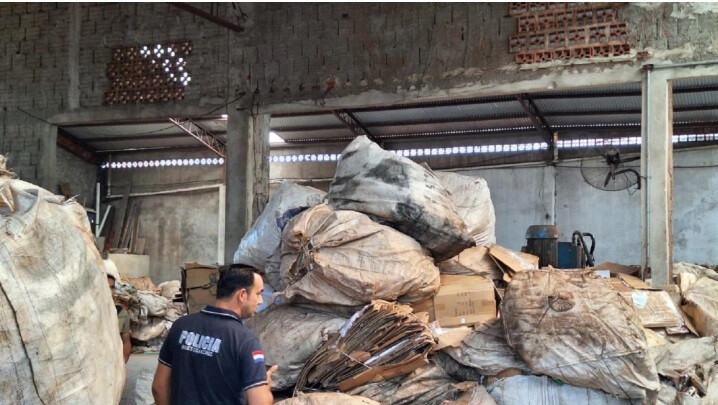
Paraguayan authorities have uncovered a large-scale attempt to illegally smuggle plastic and other solid waste into Brazil and are expanding their investigation into the related organization. Local time on April 24, 2025, the Paraguayan Public Prosecutor's Office, the National Police, and the National Directorate of Taxation (DNIT) raided three large warehouses in the Pedro Juan Caballero area of Amambay Department, which were suspected of illegal waste trading and tax evasion, and seized a significant amount of waste.
The crackdown, carried out under the direction of Prosecutor Katia Uemura, revealed a large quantity of plastic and other solid waste that was about to be illegally transported to Brazil, taking advantage of lax surveillance at the border. The Public Prosecutor's Office stated that the exact amount of seized waste is still being determined, but these materials are items subject to strict environmental and commercial regulations.
The investigation revealed that the illegal organization had been disguising the waste as intended for recycling for several weeks during transportation, evading national surveillance without complying with legal and tax regulations.
Meanwhile, the Paraguayan Senate passed a bill to legalize and regulate the trade of recyclable waste, particularly ferrous metals, non-ferrous metals, and PET plastics. This bill aims to establish a regulatory framework to ensure that the trade of these items is conducted transparently under legal and sustainable conditions. Officials from the technical committee involved in the bill's drafting emphasized that its main purpose is to systematize the recycling industry, prevent environmental damage, eradicate illegal trade, and make recycling an official and controllable economic activity.
The simultaneous strengthening of crackdowns in border areas and legislative efforts in Congress marks a significant turning point in Paraguay's waste management policy. This is interpreted as part of an effort to eradicate illegal waste trade and foster a safer, more transparent, and responsible recycling industry. Technical committee experts added that this bill aims to regulate not only the environmental and social impacts but also the economic ripple effects of the trade in recyclable waste.
Furthermore, through the involvement of the National Directorate of Taxation (DNIT), measures will be explored to eradicate the practice of underreporting prices during waste exports, which causes approximately $100 million in tax revenue leakage.
With this illegal waste seizure and the passage of the recycling-related bill, Paraguay's waste management system is expected to be strengthened, and surveillance and penalties for illegal activities are expected to be reinforced.
[Copyright (c) Global Economic Times. All Rights Reserved.]




























